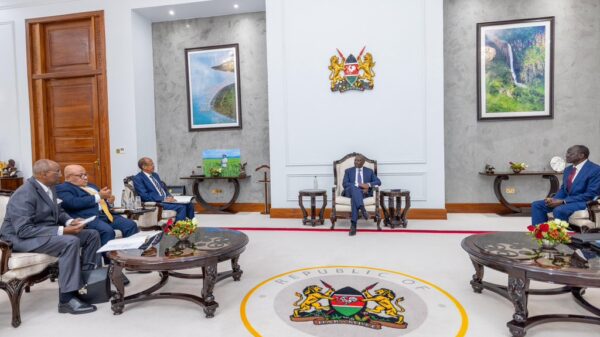New Delhi, Sept – 9, 2023 – On the inaugural day of the G20 New Delhi Leaders’ Summit, Indian Prime Minister Narendra Modi unveiled the Global Biofuel Alliance (GBA), a groundbreaking collective aimed at catalyzing the global adoption of biofuels. The launch event witnessed the presence of distinguished leaders from the USA, Brazil, the UAE, Singapore, Italy, Argentina, Bangladesh, and Mauritius.
The GBA’s mission is to expedite the worldwide acceptance of biofuels by promoting technological innovation, sustainable biofuel use, robust standards and certifications, and broad stakeholder engagement. It will also serve as a repository of knowledge and an expert hub to foster global collaboration in advancing biofuel technologies.
Positioned for Impact
Comparable in significance to the International Solar Alliance, the GBA seeks to accelerate the adoption of biofuels globally and promote innovation in biofuel technologies. Its objectives include establishing universal standards, identifying global best practices, and engaging the industry actively.
This landmark announcement coincides with several crucial environmental occasions in September. It emphasizes the collective responsibility to protect our natural environment and improve air quality.
A Green Alternative
Biofuels, derived from agricultural produce or organic waste, offer cleaner energy alternatives. These fuels can be categorized into generations based on their origins. First-generation biofuels come from food crops, while second-generation biofuels are derived from non-edible vegetation and agricultural waste. Third-generation biofuels are sourced from algae.
Biofuels are low in emissions when used in engines, offering a promising alternative to conventional fossil fuels. Biofuels have the potential to replace fossil fuels in aviation and certain marine vessels, significantly reducing their carbon footprint.
Global Collaboration for a Sustainable Future
Nineteen countries and twelve international organizations have joined the GBA, with India, Brazil, and the United States as founding members. These countries collectively account for a substantial portion of the global ethanol market, which was valued at $99.06 billion in 2022 and is projected to grow at a compound annual growth rate (CAGR) of 5.1% to reach over $162.12 billion by 2032.
The International Energy Agency (IEA) estimates that global biofuel production must triple by 2030 to achieve net-zero emissions by 2050. India, committed to carbon neutrality by 2070, has set ambitious goals for biofuel blending and production.
India’s Leadership in Biofuels
India has pioneered biofuel adoption with the National Biofuels Policy, which includes blending targets, incentives, tax concessions, and import regulations for ethanol. The government aims to achieve a 20% ethanol blending rate in petrol by 2025-26, ahead of its original 2030 target. India has already achieved a 10% ethanol blending rate, reducing CO2 emissions by 2.7 million tonnes and saving Rs 41,500 crore in foreign exchange.
Additionally, India has promoted compressed bio-gas (CBG) as an eco-friendly fuel source derived from waste. The Sustainable Alternative Towards Affordable Transportation (SATAT) initiative has enabled the establishment of 46 CBG production facilities.
India plans to launch Flex Fuel Vehicles that can operate on various fuel mixtures, further curbing emissions and reducing crude oil imports. The country has also conducted its first commercial passenger flight powered by domestically-produced sustainable aviation fuel (SAF), demonstrating its commitment to reducing carbon emissions in aviation.
Global Impact of the GBA
The GBA represents a catalyst for sustainable biofuels, fostering global collaboration through capacity-building, technical support, and policy harmonization. It champions internationally recognized standards, sustainability principles, and regulations, facilitating biofuel adoption and trade.
The initiative offers significant benefits to India, boosting its global standing and export opportunities in technology and equipment. The GBA is expected to unlock bioenergy access in emerging economies, creating new business prospects in the bio-energy sector. Ultimately, the GBA aims to bolster rural economies, combat environmental challenges, reduce emissions, enhance air quality, elevate farmer livelihoods, and fortify energy independence through sustainable practices and international collaboration.















































